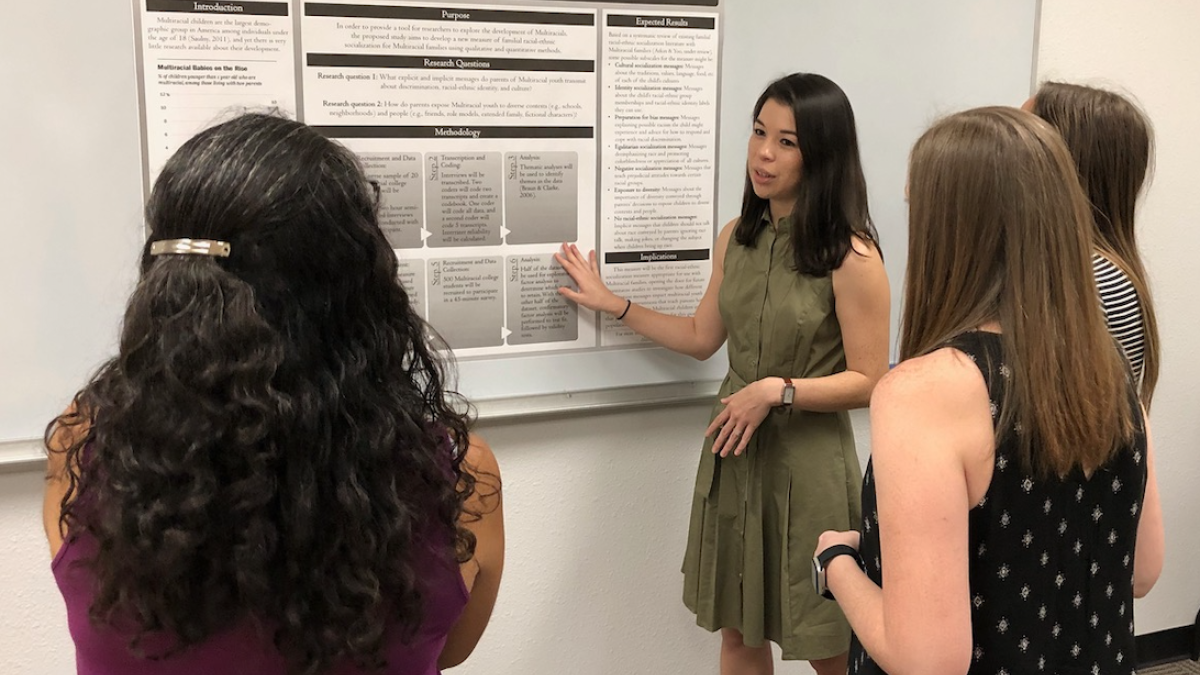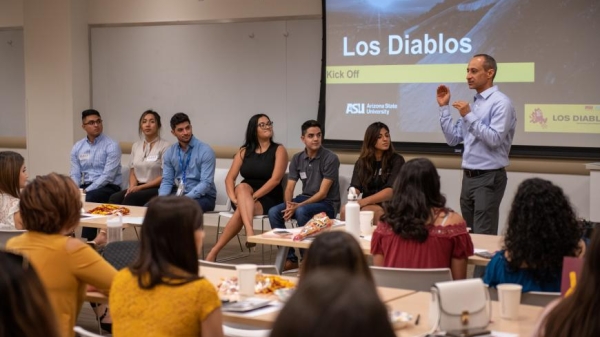Sanford School graduate student receives poster contest award

Annabelle Atkin presenting her research poster.
Arizona State University’s Institute for Social Science Research recently announced the winners of their spring 2019 poster contest. Among them was Annabelle Atkin, a graduate student from the T. Denny Sanford School of Social and Family Dynamics.
Each semester the institute invites graduate students to participate in a poster contest. The contest is open to all graduate students who are doing social science research in any field and on any campus at ASU.
Atkin, who received an honorable mention award of $400, presented her poster titled, “Developing a Racial-Ethnic Socialization Measure for Multiracial Families”.
Atkin plans to put her poster contest award to good use as it will help to cover the costs of computer software needed for data coding for further work on her project. She has already completed subject interviews, and starting this summer, she will train her research assistants to code the data so that they can all code separately, leading to more accurate results.
Atkin answered some questions about her research project.
Question: What is the purpose of your research project?
Answer: The purpose of my project is to 1) gain an understanding of the types of messages that parents transmit to their multiracial children about race, and 2) develop a measure for researchers to study this process, known as racial-ethnic socialization.
Q: What role do parents play in the lives of multiracial children?
A: The ways that parents teach children to understand race, whether explicitly or implicitly communicated, are important for child development in our racialized society. For example, parents play an important role in helping multiracial children understand their racial group membership, supporting them in exploring their racial-ethnic identity and teaching them how to handle experiences of racial discrimination and marginalization.
Q: How can you develop your measure and how could that lead to social change?
A: By interviewing multiracial youth, I can better capture their lived experiences of racial-ethnic socialization and write items for a measure that reflects their realities. With this measure, researchers will be able to understand how different types of messages relate to other important developmental processes and outcomes, allowing us to make recommendations for parents about how to effectively discuss race with their children.
More University news

ASU Alumni Association to honor 3 outstanding alumni leaders during Homecoming
The Arizona State University Alumni Association will proudly recognize three innovative alumni leaders during the Homecoming…

From service to civilian success
Transitioning from military to civilian life is a unique experience that can be challenging for veterans. Some struggle to find…

ASU as the 'New American University' sets the model for higher education reform
Arizona State University’s charter is only 46 words long, but it’s a bold promise that’s a model for the reinvention of higher…